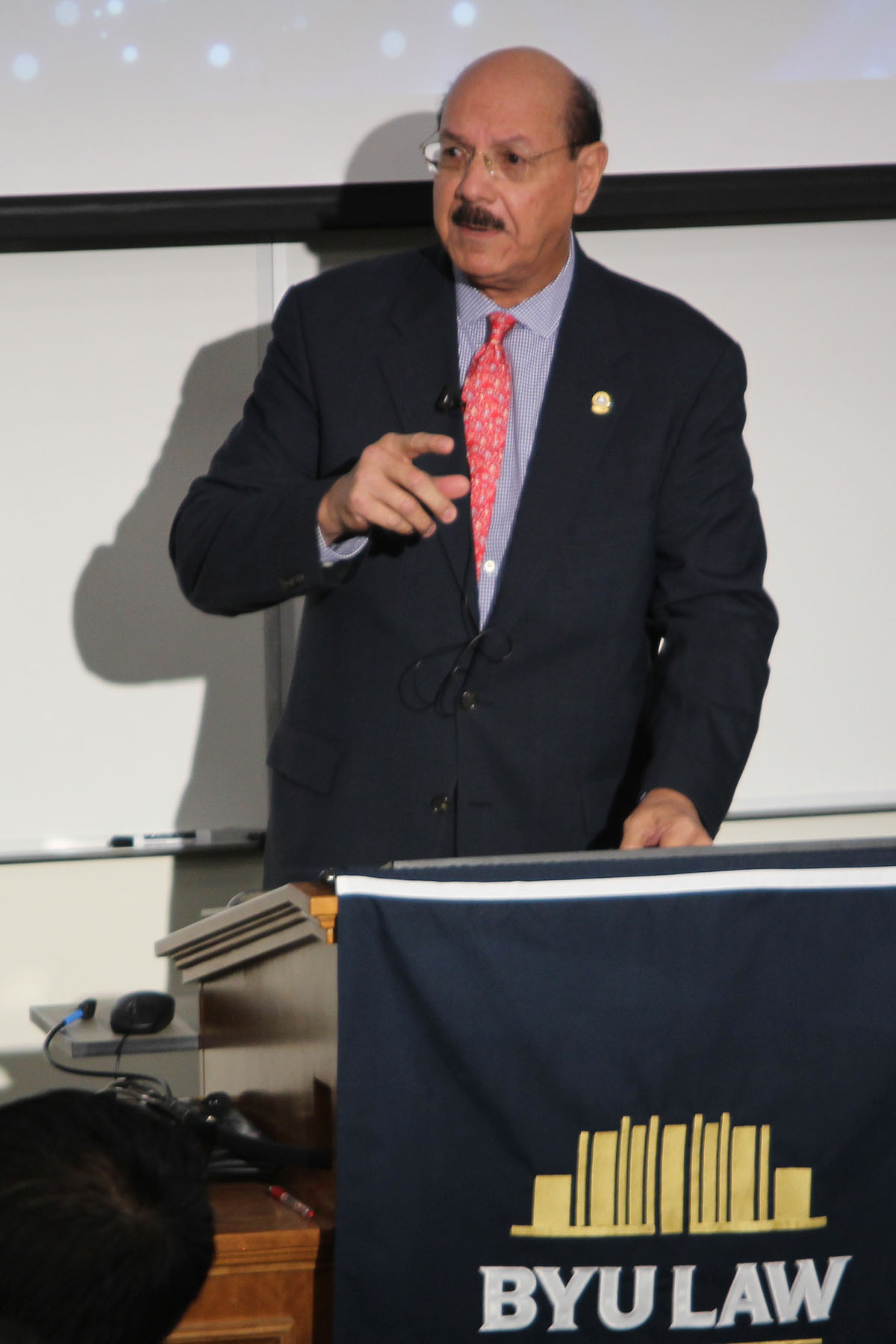





Jose Antonio Alvarado Correa
by Alexander Alton, BYU Law Student and Symposium Volunteer
The breakout session entitled Religion and Security in a Changing World: Latin America was held on Monday, October 2, 2017 and moderated by Professor Gary B. Doxey, Associate Director of the International Center for Law and Religion Studies. The session featured presentations by Jose Antonio Alvarado Correa, a member of Central American Parliament, Guatemala; Silvio Mora Mora, the Ambassador of Nicaragua in Guatemala; Raquel Caballero de Guevara, Attorney General for the Defense of Human Rights in El Salvador; and Manuel Ignacio Acosta Gutiérrez, Mayor of Hermosillo, Mexico.
Mr. Correa expounded on the need to do more in Guatemala to involve political leaders in discussions about religious freedom if we want to protect this fundamental right. He explained that having peace is not only the absence of conflict—complete peace includes tolerance that we can all respect each other and give space to exercise our own beliefs. He expressed his belief that respect for God helps people respect the laws of the world and others’ beliefs because, even though some things are not protected by earthly laws, moral law still guide proper behavior. He also encouraged more cooperation among religious groups, stating that we should focus more on the things we have in common than on our differences.
Ambassador Mora contrasted fighting battles with ideas that come from God with fighting battles with weapons that come from men. He outlined the history of the development of religious liberty in Nicaragua. Religion played a fundamental role in ridding Nicaragua of its dictatorship, and the 1987 constitution of Nicaragua provides that all people have the right to freedom of conscious and belief. He explained how Christian ideals were fundamental to establishing modern Nicaragua.
Attorney General Caballero de Guevara discussed the importance of freedom of religion as a natural and fundamental human right. El Salvador does not require authorization or special permits from the State in order to exercise a fundamental right, and all should be able to exercise this fundamental right in private and in public. She acknowledged that freedom of religion has its limits, just like any other right. The right to choose religion is part of individual autonomy and human dignity; therefore, we must practice our religion in accordance with respect for the rights of others.
Mayor Gutiérrez lectured about the history of control of the Catholic Church in Mexico, showing how Mexico went from a state that was completely religious to a state that is completely secular. He explained that presently in Mexico, the state has nothing to do with religion. However, he believes that religious freedom is a fundamental right that can be demanded in the judicial system, and this is something that Mexico is working to understand. He expressed his desire that Mexico embrace a neutral secularism that is truly neutral; instead, it appears that what happened in Mexico was a prohibition of professing religion in public. The most important thing is to build a state that allows for individual freedoms such as freedom of religion and freedom and belief and conscious. He believes that Mexico has much work to do in this area.
